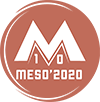Whilst the striking diversity and eclecticism of Mesolithic research in 2020 is characterised by a huge range of analytical approaches, datasets and interpretive frameworks, a small handful of core themes still unite us as a body of study. One of these is a primary interest in hunter-gatherers. The relationship between our understanding of the hunter-gatherer groups with whom we currently share the planet, and that of those who inhabited Europe during the Mesolithic period, has been an ever-present theme in Mesolithic research. Contemporary or near-contemporary hunter-gatherers have provided a variety of analogies for our reconstructions of Mesolithic lives. These have ranged as the discipline has developed: from (neo)evolutionary assumptions, through the application of foraging and mobility models, developing social complexity, ontological frameworks and many more.
There is great variety in the relationship between Mesolithic archaeology and the broader anthropology of hunter-gatherers, including important regional and research tradition variation. However, it is clear that this dialogue has tended be dominated by the archaeological application of anthropological concepts. The extent to which Mesolithic research has contributed to wider anthropological debates over what hunter-gatherer societies are and can be has seldom been assessed or addressed.
This session aims to reflect on the history of the relationship between hunter gatherer anthropology and Mesolithic archaeology, and take stock of the range of ways in which these two disciplines currently engage with one another. However, it seeks to go beyond a retrospective historiographical study, and poses a critical question of its own: In 2020, how does Mesolithic Archaeology contribute towards the wider field of hunter-gatherer research?
We welcome contributions which:
- Critically reflect on the relationship between Mesolithic archaeology and Hunter-gatherer anthropology over the past two centuries
- Explores the ways in which Mesolithic research undertaken in the past 5 years has engaged with hunter-gatherer anthropology
- Outlines novel approaches to the Mesolithic, informed by emerging anthropological concepts
- Offer appraisals of the ways in which Mesolithic archaeology can contribute towards current debates within Hunter-gatherer anthropology
We are delighted that Professor Charlotte Damm (Univ Tromso) has agreed to act as discussant. We feel that Professor Damm's perspectives on long-term hunter-gatherer dynamics and the interaction between different analytical perspectives will provide a very important contribution to our debate.

 PDF version
PDF version
